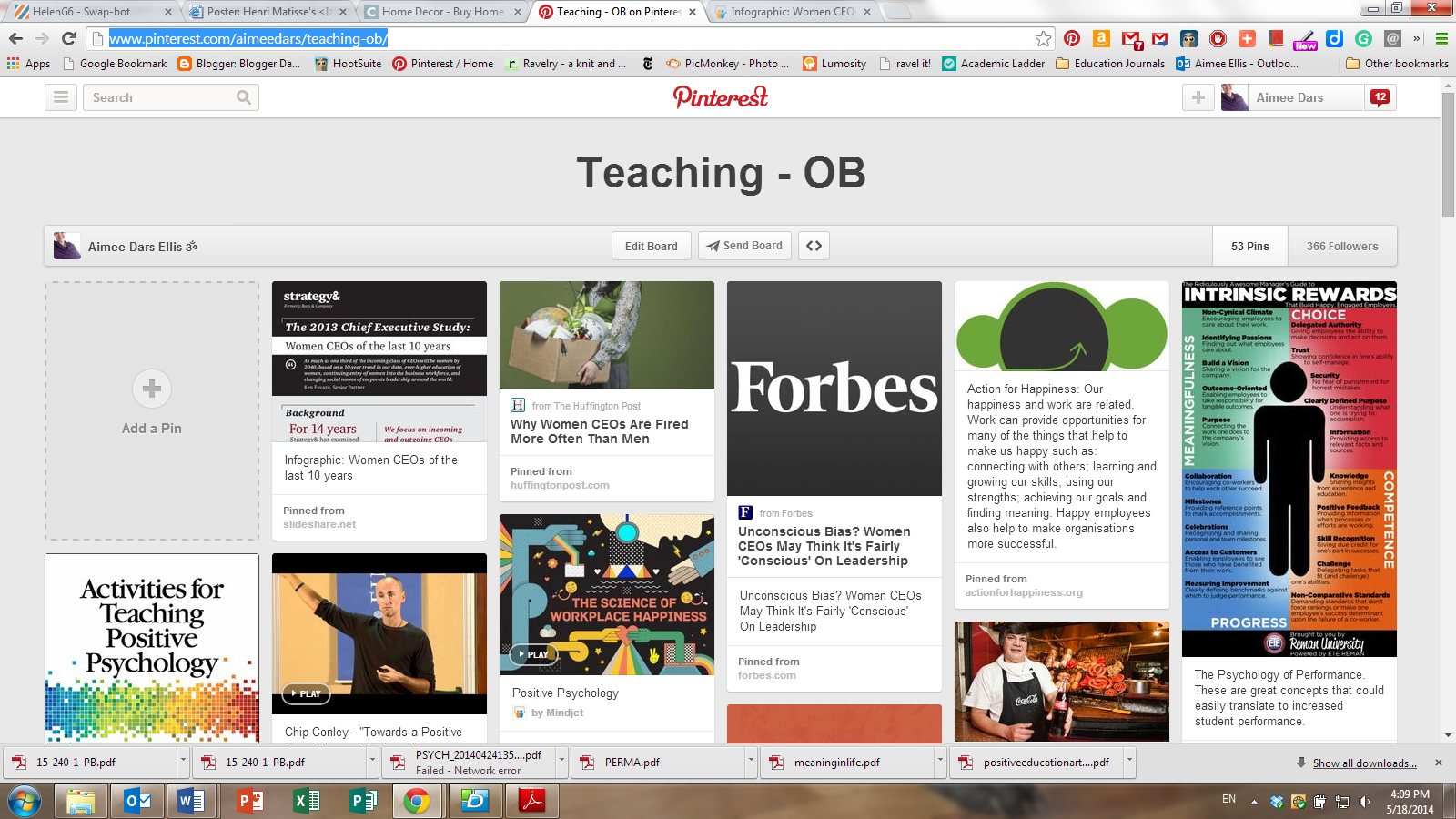Real World OB
Sunday, June 22, 2014
Monday, May 26, 2014
Kept and Broken Promises
Last week, BloombergBusinessweek published, "Nobody Cares How Awesome You Are at Your Job" (Suddath, 2014), a summary of an academic study by Ayelet Gneezy (UCAL) and Nicholas Epley (University of Chicago, my alma mater). Don't take that headline to mean that your efforts are worthless or that you can spend the next week playing Candy Crush or updating Facebook.
The original study, "Worth Keeping but Not Exceeding: Assymetrical Consequences of Keeping versus Breaking Promises" (Gneezy & Epley, 2014) tracks the impact of the effort made in the fulfillment of commitments made to others. Their work suggests that, if you fail to follow through with a promise, the recipient of that promise will view your effort negatively, suspect you were insincere in making a promise, and be unhappy with the situation. If you meet a promise with exceptional effort, it is virtually the same as keeping a promise without making that effort.
The original study, "Worth Keeping but Not Exceeding: Assymetrical Consequences of Keeping versus Breaking Promises" (Gneezy & Epley, 2014) tracks the impact of the effort made in the fulfillment of commitments made to others. Their work suggests that, if you fail to follow through with a promise, the recipient of that promise will view your effort negatively, suspect you were insincere in making a promise, and be unhappy with the situation. If you meet a promise with exceptional effort, it is virtually the same as keeping a promise without making that effort.
Monday, May 19, 2014
Non-Profit Board Member Agreements
 |
| Photograph by WoodleyWonderworks available at https://www.flickr.com/photos/wwworks/9111274504/ |
Sunday, May 18, 2014
OB on Pinterest
Last Fall (2013), I didn't teach Organizational Behavior, so most of my attention was focused on Business Ethics. However, I continually collect information about teaching Organizational Behavior on Pinterest. My Teaching - OB board includes links to articles, video clips, infographics, books, and other resources relevant to an OB course.
Saturday, December 14, 2013
Target Bingo
While visiting my local Target today, I saw a product, a Rachel Ray Oil Dispensing Bottle, that I decided would be a nice addition to our kitchen. I put it in the top part of my cart, the part for children, but where I put fragile or small items. Unfortunately, I had forgotten to raise the barrier that closes the leg holes. Without pushing the cart more than a foot, the bottle fell out one of the leg holes and shattered with an embarrassingly clamourous crash. At the same moment, two women passed the aisle and gave me a look. Still, I cannot ascertain whether it was pity or disgust.
I went to the end of the aisle to find a Target associate so I could report my wrongdoing. Alas, I saw no employees in the red and khaki uniforms. I walked around a little, still without success. Finally, I went to one of the customer service phones placed throughout the store and confessed to causing a ruckus on aisle 30-B. As I was speaking to the representative who reassured me my mess would be cleaned, an associate walked by and asked if I needed help. I hung up the phone and explained that I was reporting a broken item. She said, "Oh, I thought I heard something smash." Another associate, I'm guessing a new employee, entered the scene. The woman who had asked me if I needed help then directed the newcomer to the location of the shattered bottle for a clean up job. With some sympathy, to make it seem a little less horrible, she told the cleaning designee, "At least you can add it to your Target Bingo Card!"
I moved from my shamefaced state to curiosity. "A bingo card! Is that real or just a joke?" She explained that it was real, and the first time an associate completed certain tasks, they could check off the job. At that point, she had to take care of another customer, but I was fascinated. This type of activity could enliven entry-level or routine jobs to promote motivation and engagement. It's also something that could be used in training, either to demonstrate evidence of learning or to identify training needs.
Thursday, July 25, 2013
McDonald's Spending Journal: Beneficial or Patronizing?
Last week, Stephen Colbert did a story on the spending journals that McDonald's provides its low-wage employees. Are these journals helpful to the employees - or are they patronizing?
McDonald's Spending Journal
Times Magazine Commentary
McDonald's Spending Journal
Times Magazine Commentary
Wednesday, July 17, 2013
Multitasking Mayhem
In a story on NPR's Science Friday, Professor Clifford Nass outlined the disadvantages of doing more than one thing at a time, including distraction, poor concentration, and decreased creativity.
Stephen Colbert did a hilarious piece on this story as only he can! LINK
We all think we are good at multitasking and that it saves us time, but often we pay in mistakes and wasted time when we have too much going on at once.
Stephen Colbert did a hilarious piece on this story as only he can! LINK
We all think we are good at multitasking and that it saves us time, but often we pay in mistakes and wasted time when we have too much going on at once.
Subscribe to:
Comments (Atom)

